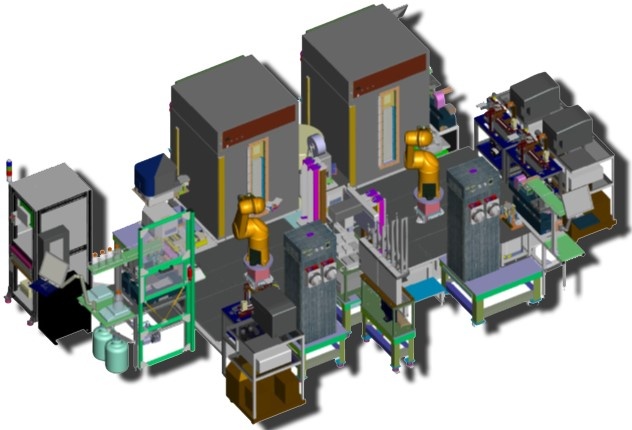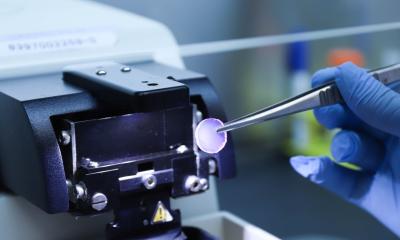
News • High-throughput system
Speeding up flow cytometry to discover new drugs
A new SLAS Discovery original research article available now for free ahead-of-print, researchers from the Genomics Institute of the Novartis Research Foundation (GNF) highlights a diversity of approaches that their automated high-throughput flow cytometry has enabled for phenotypic drug discovery.
Flow cytometry is a very powerful tool that has been used for decades and allows for multiparametric readouts at the single cell level within heterogeneous cell populations. However, in the context of high-throughput screening, flow cytometry is slow, low-throughput, and is not amenable to automation. The GNF group has developed a fully automated screening system that solves this problem. The system can achieve a throughput of 50,000 wells per day, resulting in a fully automated platform that enables robust phenotypic drug discovery.
Over the past five years, this screening system has been used for a variety of drug discovery programs, across many disease areas, with many molecules advancing quickly into preclinical development and into the clinic.
Pharmaceutical companies are tasked with finding new drugs that provide real benefit to patients. A common approach is through the use of phenotypic screening. This is dependent upon the ability to establish complex, biologically relevant screening assays and run high-throughput screening campaigns. However, this kind of complex biology requires new methodologies for lead identification and screening systems like the one developed by the GNF team.
Source: SLAS (Society for Laboratory Automation and Screening)
30.05.2018





